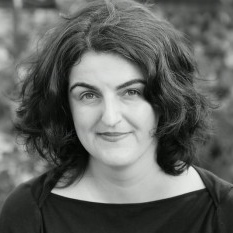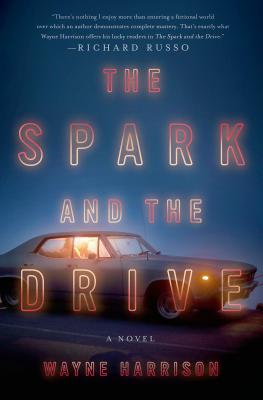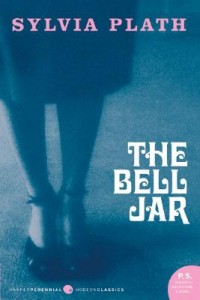 The summer before my senior year of college, I found an unexpected friend in Esther Greenwood, the protagonist of Sylvia Plath’s The Bell Jar. As I tore through the novel, I was captivated by the plights of this young woman, many of which—her abashed sense of self-identity, failed romantic exploits, and apprehension for the future—mirrored my own internal struggles. Having been rejected by every journalism internship program I’d applied to, I too was fighting an uphill battle against malaise and disillusionment, and I found comfort in Esther’s woes, in our shared difficulty to understand our place in the world. But the more I related to Esther, the more terrified I became. Here was a character on the precipice, and I could feel each pang of despondency echoing within myself.
The summer before my senior year of college, I found an unexpected friend in Esther Greenwood, the protagonist of Sylvia Plath’s The Bell Jar. As I tore through the novel, I was captivated by the plights of this young woman, many of which—her abashed sense of self-identity, failed romantic exploits, and apprehension for the future—mirrored my own internal struggles. Having been rejected by every journalism internship program I’d applied to, I too was fighting an uphill battle against malaise and disillusionment, and I found comfort in Esther’s woes, in our shared difficulty to understand our place in the world. But the more I related to Esther, the more terrified I became. Here was a character on the precipice, and I could feel each pang of despondency echoing within myself.
Turns out, I wasn’t alone. Many friends of mine expressed similar sentiments, as have numerous other young women who’ve encountered The Bell Jar since its publication. In particular, how Plath captures the tumultuous quest to construct an identity from an array of seemingly incongruous pieces. Esther is compelling, for better or for worse, for her emotional challenges, giving language to the turmoil so many young women feel, but struggle to articulate.
Today marks the 50th anniversary of Plath’s death. She died on February 11, 1963, from carbon monoxide poisoning after sealing off the kitchen, sticking her head in the oven, and turning on the gas. The circumstances surrounding the incident have served as the source of intrigue for years, as readers and experts seek to develop a better understanding of the downfall of the bright, young woman with a gift for prose and lyrical poetry. Released in accordance with the anniversary of her death, two writers have forayed into her troubled past again in two separate biographies that add to the prolific work already done on Plath.
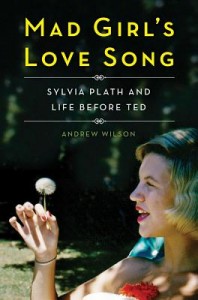 Andrew Wilson’s Mad Girl’s Love Song: Sylvia Plath and Life Before Ted (Scribner) chronicles Plath’s romantic entanglements prior to her marriage to poet Ted Hughes, a union which many speculate played a role in her suicide. Emma Garmon, in her recent Salon review, calls the book a “thoughtful and well-researched study” and asserts that Wilson “persuasively submits that the seeds of Plath’s self-destruction were sown long before she met her husband.” Hughes has remained a controversial player in the story of Plath, namely in his affair that reportedly disintegrated their marriage, and his joint ownership of the Plath literary estate with his sister Olwyn, along with their stringent control of Plath’s work following her death. Hughes was reported to have burned Plath’s last journal and misplaced some of her unpublished work, and Olwyn has repeatedly spoken out about the overwrought analysis of her sister-in-law’s work, as well as the victimization of her brother. In a January Guardian interview, Olwyn said, “Sylvia wasn’t the innocent victim, or half so helpless as she’s been made out to be. You just have to look at some of her poetry … She was vicious and a little bit crazy.”
Andrew Wilson’s Mad Girl’s Love Song: Sylvia Plath and Life Before Ted (Scribner) chronicles Plath’s romantic entanglements prior to her marriage to poet Ted Hughes, a union which many speculate played a role in her suicide. Emma Garmon, in her recent Salon review, calls the book a “thoughtful and well-researched study” and asserts that Wilson “persuasively submits that the seeds of Plath’s self-destruction were sown long before she met her husband.” Hughes has remained a controversial player in the story of Plath, namely in his affair that reportedly disintegrated their marriage, and his joint ownership of the Plath literary estate with his sister Olwyn, along with their stringent control of Plath’s work following her death. Hughes was reported to have burned Plath’s last journal and misplaced some of her unpublished work, and Olwyn has repeatedly spoken out about the overwrought analysis of her sister-in-law’s work, as well as the victimization of her brother. In a January Guardian interview, Olwyn said, “Sylvia wasn’t the innocent victim, or half so helpless as she’s been made out to be. You just have to look at some of her poetry … She was vicious and a little bit crazy.”
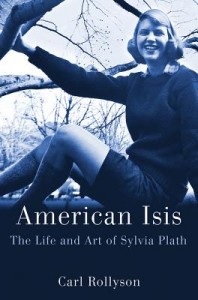 Carl Rollyson further explores the ongoing tension between relatives of Hughes and Plath in American Isis: The Life and Art of Sylvia Plath (St. Martin’s Press), which Salon describes as “a lively whistle-stop tour of all the significant landmarks in its subject’s short life.” Throughout the biography, Rollyson asserts that Plath is “the Marilyn Monroe of modern literature,” a comparison that critic Adam Kirsch lauds in his New York Times review as both startling and valid, though one he feels the author is unable to fully bring to fruition. Kirsch’s largest grievance is that while Rollyson acknowledges that both women lived before the advent of modern feminism, married literary savants, and met tragic fates, he failed to fully build on the material to create a biography that sets itself apart. Still, Kirsch writes that the book “is concise, fast-moving and reliable” and serves as an accurate depiction of Plath’s life, despite some of his misgivings.
Carl Rollyson further explores the ongoing tension between relatives of Hughes and Plath in American Isis: The Life and Art of Sylvia Plath (St. Martin’s Press), which Salon describes as “a lively whistle-stop tour of all the significant landmarks in its subject’s short life.” Throughout the biography, Rollyson asserts that Plath is “the Marilyn Monroe of modern literature,” a comparison that critic Adam Kirsch lauds in his New York Times review as both startling and valid, though one he feels the author is unable to fully bring to fruition. Kirsch’s largest grievance is that while Rollyson acknowledges that both women lived before the advent of modern feminism, married literary savants, and met tragic fates, he failed to fully build on the material to create a biography that sets itself apart. Still, Kirsch writes that the book “is concise, fast-moving and reliable” and serves as an accurate depiction of Plath’s life, despite some of his misgivings.
But even with the many books on Plath that have continued to appear, we can never fully know the complicated inner landscape of the woman who penned poems like “Lady Lazarus,” in which the speaker declares, “Dying Is an art, like everything else / I do it exceptionally well.” But one thing is true: Plath’s writing continues to resonate. We’ve all been stuck in the proverbial bell jar, and though its themes are universal, Plath’s novel has particularly connected with young women—girls like me finding a part of Esther in themselves. Plath was daring, if not visionary, in her desire to tackle then-taboo topics of depression and suicide, subjects that still give us pause.
Yet on the anniversary of her death, perhaps we might focus as much on the gift of Plath’s work as on the tragedy of her loss, on her contribution to a canon. For just as I commiserated with Esther’s anguish, so too I ached for Kate Chopin’s protagonist Edna Pontellier in The Awakening, and Edna’s arduous quest for independence and happiness in late 1800s New Orleans. Both Chopin and Plath allow readers to meditate on the challenges of being a young woman, and not feel frivolous and foolish in doing so, even when—perhaps especially when—the subject matter is dangerous. Amid the deep pain and suffering of Esther and Edna, we feel a sense of solidarity with these women, and are hopeful that they will rise above their anguish. In fact, it’s often through the recognition of their unhappiness and its sources that we’re able to empower ourselves to grapple with our own troubles and hope to prevent such fates. I was never close to actually being an Esther, nor did reading about her make my troubles worse, as some might suspect. Rather, identifying with her helped me assuage some of my own struggles. For this, I am grateful.
 Bethany Biron is a senior in the Ford School of Public Policy at the University of Michigan. Originally from Columbus, Ohio, she’s a reformed Buckeye turned Wolverine, with a love for literature. She spent three-and-a-half years working as a reporter and editor at the Michigan Daily, and is currently an FWR Intern.
Bethany Biron is a senior in the Ford School of Public Policy at the University of Michigan. Originally from Columbus, Ohio, she’s a reformed Buckeye turned Wolverine, with a love for literature. She spent three-and-a-half years working as a reporter and editor at the Michigan Daily, and is currently an FWR Intern.

